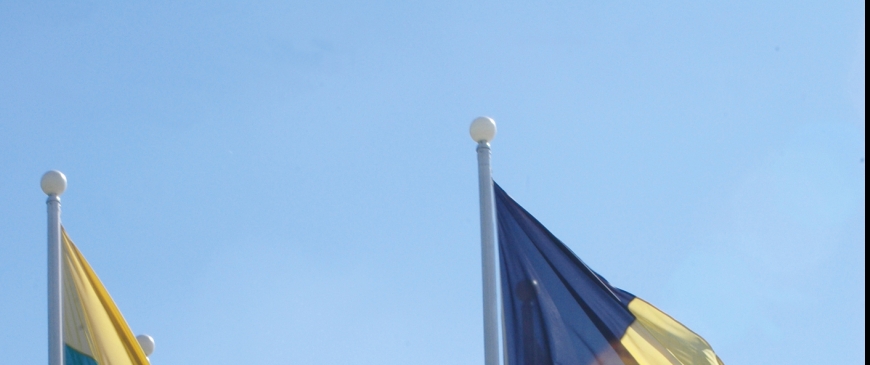
Why European diplomacy is in decline
Critics of the EU's External Action Service (EEAS) agree that its creation will hardly be remembered as a high point in the annals of European foreign policy. Some say that the EU's quasi-diplomatic corps does not yet work well because its leadership, under Baroness Cathy Ashton, suffers from inexperience and a poverty of ambition. Others say that the fledgling service can only be as strong as the message it is given to deliver and that governments are currently too distracted by the eurozone crisis to focus much on foreign policy.
There is a more interesting way to think about this problem. A psychologist might diagnose the hand-wringing and angst that surrounds the subject of the EEAS as ‘displacement’: the use of comfortably familiar but pointless introspection to distract from current realities that are too scary to face. In the EU’s case, the former is to maintain the pretence that innovations like the EEAS can, through institutional hocus pocus, produce a coherent European foreign policy by themselves. The harsher truth is that diplomats – particularly the European variety – have far less power to shape the world than they once did, whatever their internal organisation.
Europe created the diplomatic system that we know today: from Beirut to Beijing, foreign diplomats still employ terms like chargé d’affaires, démarche and note verbale. The heyday of international diplomacy was the 19th century when European foreign ministers could re-draw the map of the globe in a single afternoon and names like Castlereagh, Metternich and Talleyrand inspired awe. The period copper-fastened diplomacy's glamorous image which often belies the grim realities of today’s profession. Things have changed radically since the Congress of Vienna.
First, diplomacy began because of the need for ruling elites to pass official communiqués between states. (The patron of diplomats is Mercury, the messenger of the Roman gods.) However, the rise of modern communications has almost obliterated that role. In the 19th century, only diplomats had the necessary networks to move a kilobyte of information across borders overnight. Today, many foreign ministries do not even allow their ambassadors to use smart phones or other handheld devices because such communications are open to snooping by intelligence services. In a world of cheap, democratised global communications, diplomats can struggle to find fresh insights for their political reports home from foreign capitals. Hence, in these austere times, several European governments are closing down, cutting back or consolidating national representations abroad.
A second dilemma in the practice of statecraft is the decline of the state itself. The rise of 'global governance' in the form of the UN, WTO, regional bodies like the EU or ASEAN and international financial institutions have hastened the demotion of foreign ministries from their position as the second most important department of state. Today, foreign ministries are often places for prime ministers to stick political rivals or mavericks. And when important summitry has to be done, it is national leaders and their entourages who step in to decide things, as in the eurozone crisis.
Furthermore, pressing cross-border challenges such as the global economic crisis, irregular migration, proliferation of weapons or cyber-security more often than not require in-depth specialist knowledge. So foreign ministry officials – who normally rotate to a new role every three or four years – are often merely following instructions from an agriculture, finance, interior or trade ministry back home during international negotiations. That is, if they are in the room at all.
Third, the impact of changing lifestyles is the source of a quiet upheaval within the diplomatic profession, an issue with special salience for post-modern Europe. Diplomacy was traditionally carried out by men accompanied in foreign capitals by their wives. These dutiful women acted as a second, unpaid workforce in their role as a hostess and consort. Occasionally, they played a supporting role in behind-the-scenes or 'track two' diplomacy.
Given the strain of regular relocations on working partners and relationships; given that ever more diplomats are themselves female or pursuing alternatives to monogamous heterosexual marriages; and given that the notion of a job for life is now alien to most people, diplomacy faces a human resources nightmare. Foreign ministries are finding it harder to retain talented recruits who quickly become disillusioned with the idea of abandoning their routines and social circle every three years.
Diplomats still matter, of course: private and privileged communication between governments remains the basis for much international co-operation. And the various challenges facing the diplomatic profession apply to many parts of the world, not just Europe. But when European governments decry the apparent 'failure' of the EEAS, they would do better to confront the existential crises within their own national services.
They should reflect on why ‘agreed language’ in international accords no longer changes the world like it once did when states controlled most of the critical infrastructure needed for communication, defence and trade. When they do, they will have a clearer idea what it is that the EU’s hybrid foreign service should be doing, where and by what means. Crucially, it will help them to come up with proper metrics for the success of the EEAS and the performance of its personnel. Their absence is the central problem of EU foreign policy.
